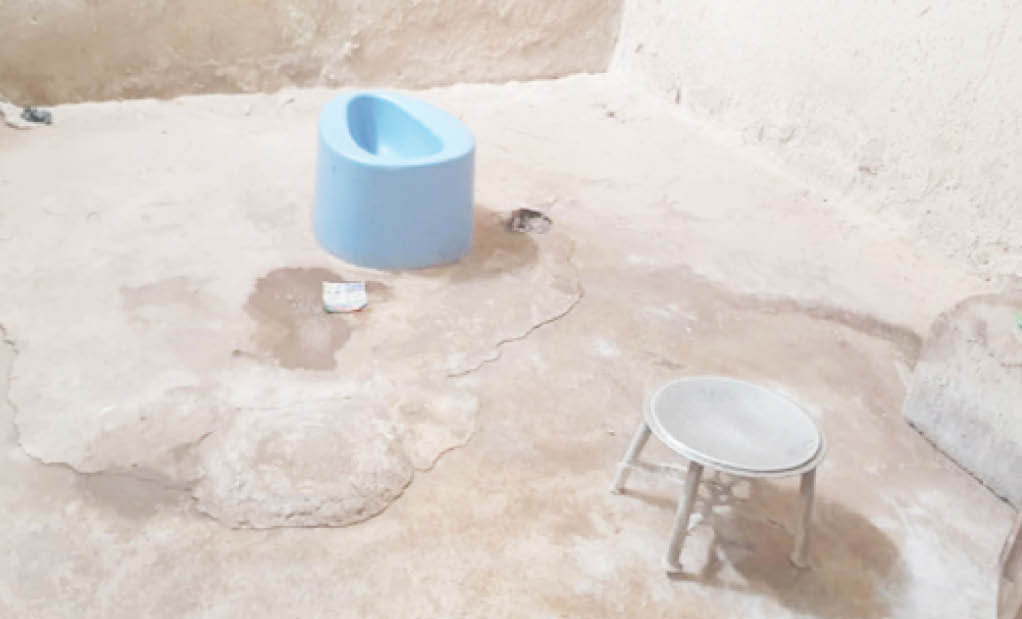Katagum LGA of Bauchi State was recently certified as Open Defecation Free (ODF), joining 105 other LGAs out of the 774 LGAs of the country to be declared open defecation free in Nigeria .
Daily Trust learnt that Katagum, alongside seven other LGAs, Dass, Warji, Shira, Gamawa, Bogoro, Ganjuwa and Toro, in Bauchi State, achieved the status through a series of public enlightenment campaigns, building of toilets in public places and embracing the use of a cheap, affordable, easy-to-install and the hygienic toilet system known as Safe Toilet (SATO).
In an interactive session with newsmen, residents of Bakin Day community in Kafin-Kuka ward of Katagum expressed happiness on how the new technology has brought relief to them from contacting diseases associated with dirty environments such as cholera, typhoid and malaria.
A resident, Malam Shamsudeen Suleiman, said his household had been using the technology after he replaced the “old dirty and unhygienic pit latrine he had been using for years.
He said the technology had proven to be financially cost-effective, created a clean environment for them and improved their health and hygiene.
He further said, “When the officials of Water, Sanitation and Hygiene (WASH) came to our community about five months ago, we were really convinced and impressed with their explanation on how to improve the health and hygiene of our environment.
“We mobilised in groups and started working towards achieving this clean and hygienic environment in our houses and public places such as mosques, schools and markets by providing disinfectants, soap and water for the places. I bought three of the SATO pans for my household and we all have been enjoying them.”
An installer of the SATO pans, Malam Ado Bala, said the WASH committee of the area and that of the LGA played a significant role in the success story of installing the SATO pans in several houses in the community.
Malam Ado said, “It is affordable to virtually everyone in the community, as it costs just about N3,500, and not more than N1,500, to install it in a particular toilet. I have installed no fewer than 50 in this community alone.”
To mark the 2023 World Toilet Day (WTD), the United Nations Children’s Fund (UNICEF), Bauchi Field Office, organised a media dialogue with journalists in Azare, headquarters of Katagum LGA, to celebrate the ODF status achieved by the LGA.
UNICEF called for a more concerted effort towards eliminating open defecation in communities across the remaining 669 LGAs across the country.
At the media dialogue with the theme: “Accelerating Change, Taking Simple Actions to Bring About Change”, the UNICEF Chief of Field Office in Bauchi, Dr Clement Adams, said poor toilet hygiene practices had remained the common causes of diseases in most communities.
He said 48 million Nigerians still practiced open defecation, and therefore called on stakeholders in the WASH sector to redouble efforts to ensure that open defecation was eliminated in Nigerian communities.
He further said WTD was celebrated every year to bring attention to the undeniable importance of safe and hygienic toilets in our daily lives, especially in terms of health, education and socioeconomic development.
He explained that, “Access to safe toilets means children, especially girls, and women are protected from the risks of attacks and abuse if they have to go into bushes to defecate. Access to basic WASH services is integral to school enrolment, attendance, retention and completion.”
The Bauchi State Commissioner for Water Resources, Abdulrazak Nuhu Zaki, expressed the state government’s determination to work for the actualisation of Sustainable Development Goal (SDG) 6.2 and the attainment of statewide ODF by 2025.
Some users of the SATO pan in Bakin Day community explained their satisfaction with the technology.
A 45-year-old woman, Halima Mohammed, said, “It is very simple, easy and clean to use for both the aged and children and people with disabilities as it does not allow smell anywhere. It accommodates the use of limited water and is generally clean.”
Halima added that since the installation of the SATO pan in their toilet, the rate of reported cases of infection by their children, especially girls, had significantly reduced.
On his part, an 18-year-old man, Umar Mohammed, said the new toilet was more convenient “as there is no foul smell, cockroaches and other insects that usually carry bacteria and other diseases from the toilet to other parts of the house.”

 Join Daily Trust WhatsApp Community For Quick Access To News and Happenings Around You.
Join Daily Trust WhatsApp Community For Quick Access To News and Happenings Around You.


